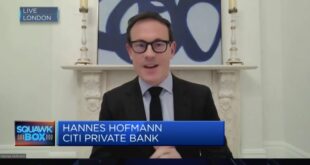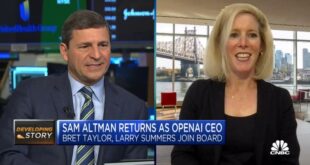
Ozan Kose | AFP | Getty Images
Turkish President Recep Tayyip Erdogan (R) poses with Beraat Albayrak on May 29, 2018 in Istanbul.
Turkish assets slipped Tuesday after re-elected President Recep Erdogan appointed his new cabinet ministers amid the adoption of sweeping new executive powers.
The country’s benchmark BIST 100 index was down 1.25 percent at noon Istanbul time, and the prices of Turkish dollar-denominated bonds fell across the board.
In a rejection of economic orthodoxy, Erdogan named his son-in-law Berat Albayrak as finance minister Monday, removing some incumbent officials considered friendlier to foreign investors and sending the Turkish lira sharply lower. The lira fell around 3 percent on the news, but pared some of its losses as markets opened Tuesday.
The embattled currency is now down 17 percent since the start of 2018 over fears of double-digit inflation, insufficiently hiked interest rates and investor distrust over the Turkish central bank’s independence.
“Albayrak will have to move very quickly to reassure financial markets — and will need to send a signal that he will listen,” said Timothy Ash, senior emerging markets sovereign strategist at Bluebay Asset Management, in a Twitter post. “The economy faces a challenging time and this is a time for orthodoxy.”
The cabinet reshuffle saw the removal of Mehmet Simsek, Erdogan’s previous deputy prime minister and a former Merrill Lynch banker who was considered a reassuring force for investors and markets. Former Finance Minister Naci Agbal, a similarly orthodox figure, was also left without a prominent role, leaving investors wondering if any voices remained to temper Erdogan’s often unconventional economic views.
The president has called himself the “enemy of interest rates,” among other things, and blamed his country’s economic turmoil on unspecified external enemies rather than on problems like inflation — currently at a 14-year high of 15.39 percent — or Turkey’s gaping current account deficit. He has been criticized for keeping the central bank’s hands tied on interest rate increases, choosing to prioritize rapid growth over controlling an overheated economy.
 EU News Digest Latest News & Updates
EU News Digest Latest News & Updates


